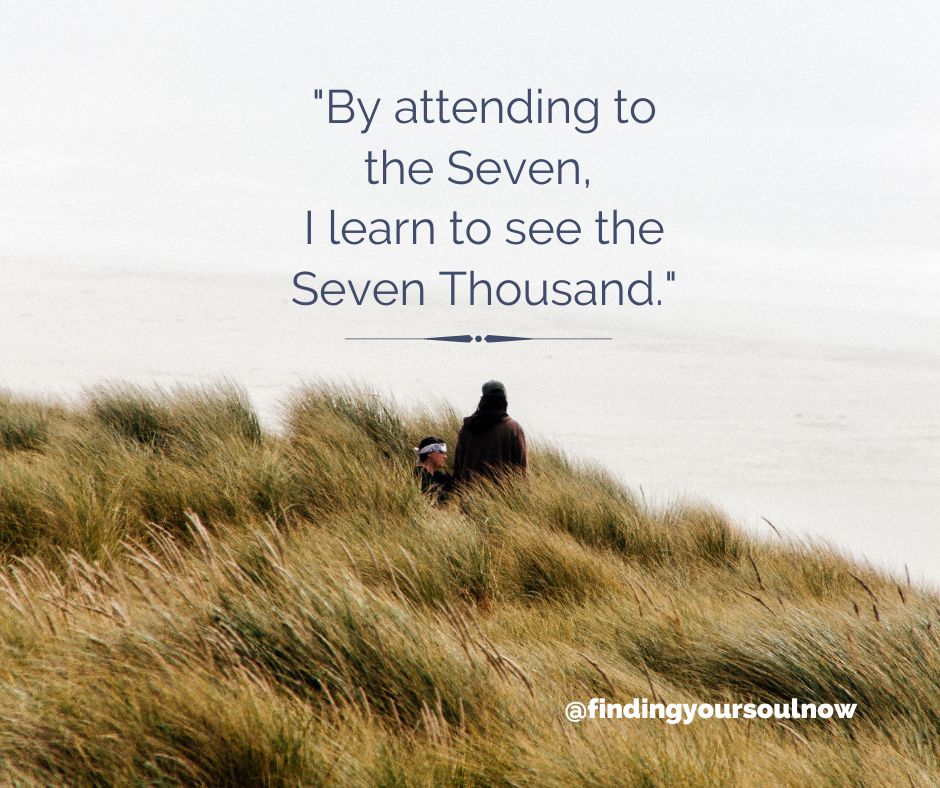Seven Thousand Miracles

Vincent Donovan, a missionary in Africa, wrote of working with the Masai many years ago. He said the people were all sitting very respectfully listening to him as the priest, and he was teaching them about the Seven Sacraments of the Church. He described a sacrament as a physical encounter or event in which you experience the Transcendent or Grace or the Holy, and he could tell the men were not very satisfied when he said there were only seven such moments. One of the elders finally raised his hand and said, “I thought there would be seven thousand!”*
In a good and beautiful way, the church dazzles us with the notion of sacraments—physical touchstones of the divine. Bread, wine, water, oil, and best of all (in the sacraments that invite the laying-on-of-hands), human touch. In our struggle to know a God who is invisible, intangible, inaudible, here are material, fleshy gifts of direct divine encounter. It’s enough to blow a soul circuit.
But then, inevitably, religion wants to put limits on where God can be encountered. It must be in this space, with this authorized presider, using these approved words, at this appointed hour.
Yesterday I was carrying buckets to water the more than forty trees and bushes we planted this spring, way out beyond where the hose can reach. It was a cloudless June day and the wind was blowing—something beyond a breeze and short of a gale, stiff, in-your-face, yet cool and damp, blustering with life. I was wind-drenched, completely enveloped in it currents, and yet–unlike a rain or snow shower—wind is invisible, so I saw nothing. Nothing except waving trees, bent grass, white dogwood petals in swirls. I stood for a moment, water buckets pulling my arms to the earth, and laughed.
That is one of the Masai elder’s seven thousand. I still love the Seven. Most every Sunday I am sitting at the eight o’clock service, grateful for bread and wine become Body and Blood, because if the miracle can happen here, it can happen anywhere. By attending to the Seven, I learn to see the Seven Thousand.
*from Richard Rohr’s “A Sacramental Universe”
I love the picture you’ve painted of watering the trees – wind present but invisible. Thanks, David!
“The wind blows where it wills and you hear the sound thereof, but cannot tell where it comes from or where it goes…” I think I had my personal Pentecost. She was a little late in coming this year!
This is very timely for me. I attended a funeral in a traditional high church service a few days ago where the music, liturgy, collects and incense, though foreign to me, were sublime. One of the most beautiful funeral experiences I’ve had. But on reflection, I wondered if it were perhaps too perfect. Would the laity feel this was the perfect formula, an elite performance not susceptible to repetition in ordinary life by the unordained? Can the seven exquisite obscure the seven thousand ordinary? Can the mystery of the church create an endless repetition of the seven, crowding out the endless mysteries of faith encounters in the “wild”? That to me represents the challenge of the priest; introducing us to the mystery without constraining it. Your writing helps remind us not to live by seven alone.
That’s such a conundrum. As a pastor I know I never wanted to create a shoddy liturgy in order to keep people from overly identifying the presence and work of God within these walls. I wanted it to be as beautiful and moving as possible. I guess my hope was—as you put it at the end—to make of church a school—that if God could open people’s eyes to see the miraculous here, they couldn’t help but see it everywhere. Did we succeed in that enterprise? Maybe.
David, love the image of you, arms tugged to the earth, laughing out loud. This morning I wrote out some gratitudes, counted my blessings. Then I read your post and realized I was also counting sacraments. Now I will add to the list: TheMasai quote. Your writing gift. Your laughter. The trees you planted. And the invisible wind.
That’s what that moment, re-lived, was for me too—a counting of a blessing.